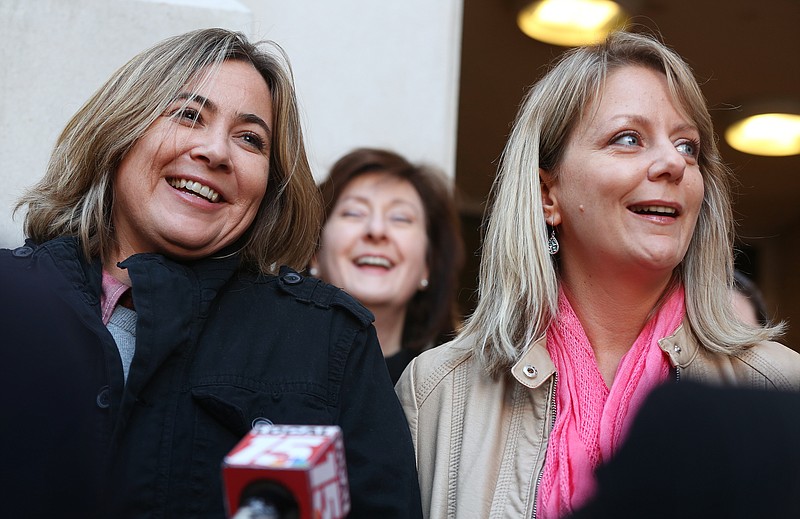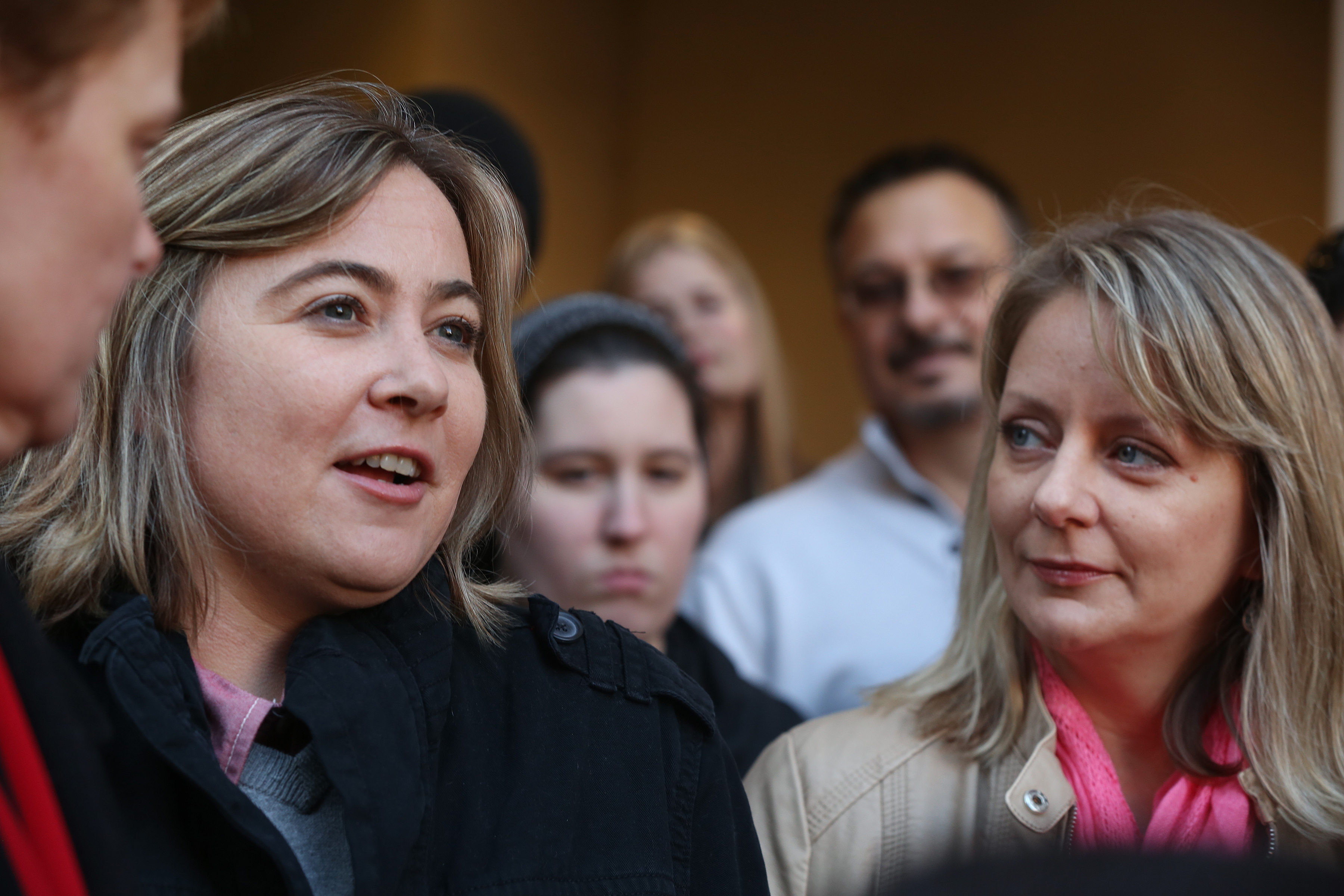MONTGOMERY, Ala. -- Alabama will be thrown into confusion and conflict if a federal court permits same-sex weddings to begin next week, the state's attorney general's office argued in a Monday court filing.
State lawyers urged the 11th Circuit U.S. Court of Appeals in Atlanta to stay a judge's decision overturning Alabama's two bans on gay marriage. They suggested there would be continued disputes over the legal status of marriages even though a judge ruled the bans unconstitutional.
"Absent a stay, any same-sex marriages that are recognized by any official in Alabama will be subject to dispute and challenge," lawyers for the Alabama attorney general's office wrote.
U.S. District Judge Callie V.S. Granade's self-imposed hold on her order expires Feb. 9, paving the way for Alabama next week to become the 37th state where gays can legally wed. Alabama has asked the 11th Circuit appeals court to keep the decision on hold since the U.S. Supreme Court will take up the issue of gay marriage later this year.
"A stay ensures that people in Alabama, including the plaintiffs, do not have to worry about the undoing of same-sex marriages or adoptions after the U.S. Supreme Court rules this June," state lawyers wrote.
State lawyers noted the conflicting statements handed down about issuing same-sex marriage licenses. The Alabama Probate Judges Association initially said Granade's decision did not bind judges to issue marriage licenses to gay couples. The group reversed course after Granade issued a clarification order and said the decision applies to them.
Alabama Chief Justice Roy Moore said last week that Alabama courts are not bound by Granade's order. The Southern Poverty Law Center has filed a judicial ethics complaint over Moore's remarks, likening it to his refusal a decade ago to obey a court order to remove a Ten Commandments monument from the state judicial building.
Cari Searcy and McKeand of Mobile filed a lawsuit last year challenging Alabama's gay marriage ban that prevented the state from recognizing their 2008 California marriage and Searcy as a parent to their son that McKeand gave birth to in 2005. Searcy had been unable to adopt the boy since she wasn't a spouse under Alabama law.
Lawyers for the couple have urged the court to reject the state's request, arguing gay families have been waiting too long without the legal protection of marriage.
"As they wait, children will be born, partners and spouses will get sick, and some will die," lawyers for Searcy and McKeand wrote last week.

